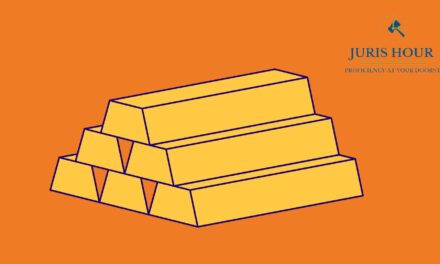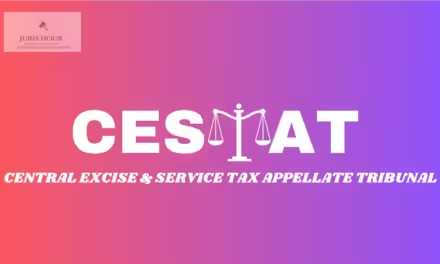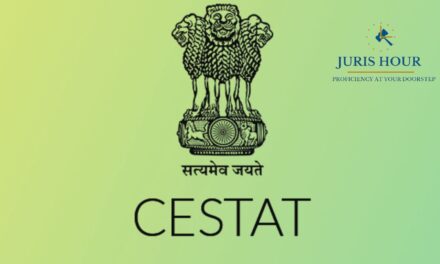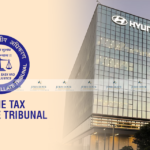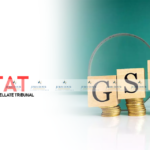The Customs, Excise & Service Tax Appellate Tribunal Bangalore held that the demand cannot be sustained beyond the normal period.
The tribunal observed that there is no doubt that all goods classified under any Chapter specified in the First Schedule to the Additional Duty of Excise (Goods Special Importance) Act, 1957 are exempted from Additional duty of customs.
The bench further noted that the exemption benefit of the Notifications are available only to those goods which are specified in the First Schedule to the Additional Duty of Excise (Goods of Special Importance) Act, 1957.
The tribunal stated that the question of extending the benefit of Notification to the goods that were omitted does not arise. Therefore, the appellant’s claim that the amendment to the First Schedule has no implication on the exemption Notification is absolutely of no legal basis in as much as the exemption Notification read with the amendment made to the First Schedule makes them ineligible for the benefit of the above Notification.
It was noted that there is no dispute that the Bills of Entry filed by the appellant was for clearance of textile materials classifiable under Chapter Headings 5407, 5516 and 5903 which specifically stand omitted by the above amendment.
The bench held that the Commissioner (Appeals) had rightly denied the benefit of the Notification and the appellant is not eligible for the benefit of the Notification during the disputed period.
Facts
The appellant, M/s. Sewing Systems Private Ltd. are engaged in the business of importing garment accessories falling under Customs Tariff Heading (CTH) 5407, 5516 and 5903 and these goods were imported from Inland Container Depot, Bangalore by filing warehousing Bills of Entry and warehoused the goods at their private bonded warehouse. Later on, the goods were de-bonded by filing Ex-bond Bills of Entry.
The appellant while ex-bonding the said goods paid Basic Customs Duty (BCD), Countervailing Duty (CVD) and Cess as applicable but claimed exemption from payment of Additional duty of customs (SAD) of 4% leviable under sub-section (5) of Section 3 of Customs Tariff Act, 1975 vide Notification No.20/2006 dated 01.03.2006.
However, later it was noticed that the said goods were not covered under the First Schedule to the Additional Duties of Excise (Goods of Special Importance) Act, 1957 and hence, they were liable to pay Additional duty of customs (SAD) of 4%. Accordingly, show-cause notice was issued and the impugned order confirmed the duty element of 4% on the said goods for the period April 2011 to March 2013.
The authorities also invoked suppression on the ground that the Bills of Entry were cleared under self-assessment and the appellant had claimed the exemption of the Notification, admittedly, which they were not eligible for, thus, there was misdeclaration and hence, the extended period was invoked.
Submissions
Counsel for the Appellant submitted that Notification provide exemption from payment of SAD of 4% for all the goods specified in the First Schedule to the Additional Duties of Excise (Goods of Special Importance) Act, 1957. At the time of debonding, the Bills were assessed accordingly and cleared on payment of BCD, CVD and other cesses.
The appellant claimed that the benefit is still available to them in as much as there is no change in the exemption Notification claimed by them.
The Authorised Representative on behalf of the Revenue submitted that there is no doubt that the benefit of Notification was not eligible to the appellant during the above disputed period but the appellant had also admitted and paid duty for the normal period.
Conclusion
The tribunal observed that since, the description, specific chapter heading and respective duties liable to be paid are clearly mentioned and assessed to duty by the officers, the question of reopening the assessments for the extended period does not arise. There are no material facts that have been mis-declared or misrepresented except to state that in self-assessment, the appellant should have been vigilant and claimed only those benefits that were available to them.
The bench said that there is nothing on record to prove that there was wilful default on the part of the appellant and hence, the demand cannot be sustained beyond the normal period.
The bench set aside the confiscation under Section 111(m) of Customs Act, 1962 and penalty imposed under Section 114A of the Customs Act, 1962.
Case Details
Case Name: M/s. Sewing Systems Pvt. Ltd. v/s The Commissioner of Customs
Citation: Customs Appeal No. 21473 of 2016
Tribunal: CESTAT Bangalore
Coram: Mrs. R. Bhagya Devi, Member (Technical)


